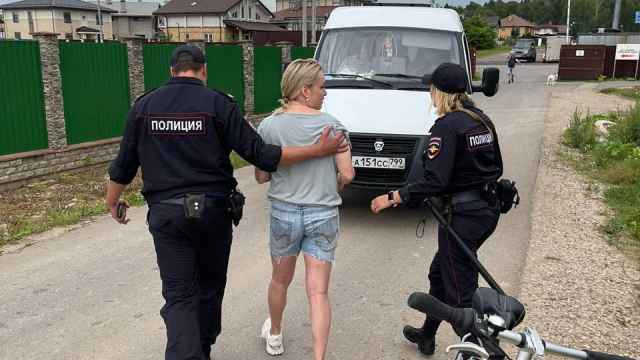German police have opened an investigation after a Russian journalist and an activist who participated in a Berlin conference reported health problems that suggested possible poisoning, the Welt am Sonntag reported.
"A file has been opened based on the information available," a Berlin police spokesman told the Sunday weekly.
Berlin police were not immediately available to respond to AFP.
Russian investigative media outlet Agentstvo published an investigation this week reporting on the health problems encountered by two participants at a meeting of Russian dissidents on April 29 and 30 organized by exiled former oligarch turned Kremlin critic Mikhail Khodorkovsky.
One participant, identified as a journalist who had recently left Russia, experienced unspecified symptoms during the event and said they may have started earlier.
The report added that the journalist went to the Charite University Hospital in Berlin — where Putin critic Alexei Navalny was treated after being poisoned in August 2020.
The second participant mentioned was Natalia Arno, director of the NGO Free Russia Foundation in the United States where she has lived for 10 years after having had to leave Russia.
Arno was in Berlin at the end of April before travelling to Prague, where she experienced symptoms and discovered that her hotel room had been opened, Agentstvo reported.
Leaving the next day for the United States, she contacted a hospital there as well as the authorities.
Arno discussed her problems — "sharp pain" and "numbness" — on Facebook this week, saying the first "strange symptoms" appeared before she arrived in Prague. She said that she still had symptoms but felt better.
In recent years, several poison attacks have been carried out abroad and in Russia against Kremlin opponents.
Moscow denies its secret services were responsible.
European laboratories confirmed Navalny was poisoned with Novichok, a Soviet-made nerve agent.
A Message from The Moscow Times:
Dear readers,
We are facing unprecedented challenges. Russia's Prosecutor General's Office has designated The Moscow Times as an "undesirable" organization, criminalizing our work and putting our staff at risk of prosecution. This follows our earlier unjust labeling as a "foreign agent."
These actions are direct attempts to silence independent journalism in Russia. The authorities claim our work "discredits the decisions of the Russian leadership." We see things differently: we strive to provide accurate, unbiased reporting on Russia.
We, the journalists of The Moscow Times, refuse to be silenced. But to continue our work, we need your help.
Your support, no matter how small, makes a world of difference. If you can, please support us monthly starting from just $2. It's quick to set up, and every contribution makes a significant impact.
By supporting The Moscow Times, you're defending open, independent journalism in the face of repression. Thank you for standing with us.
Remind me later.






